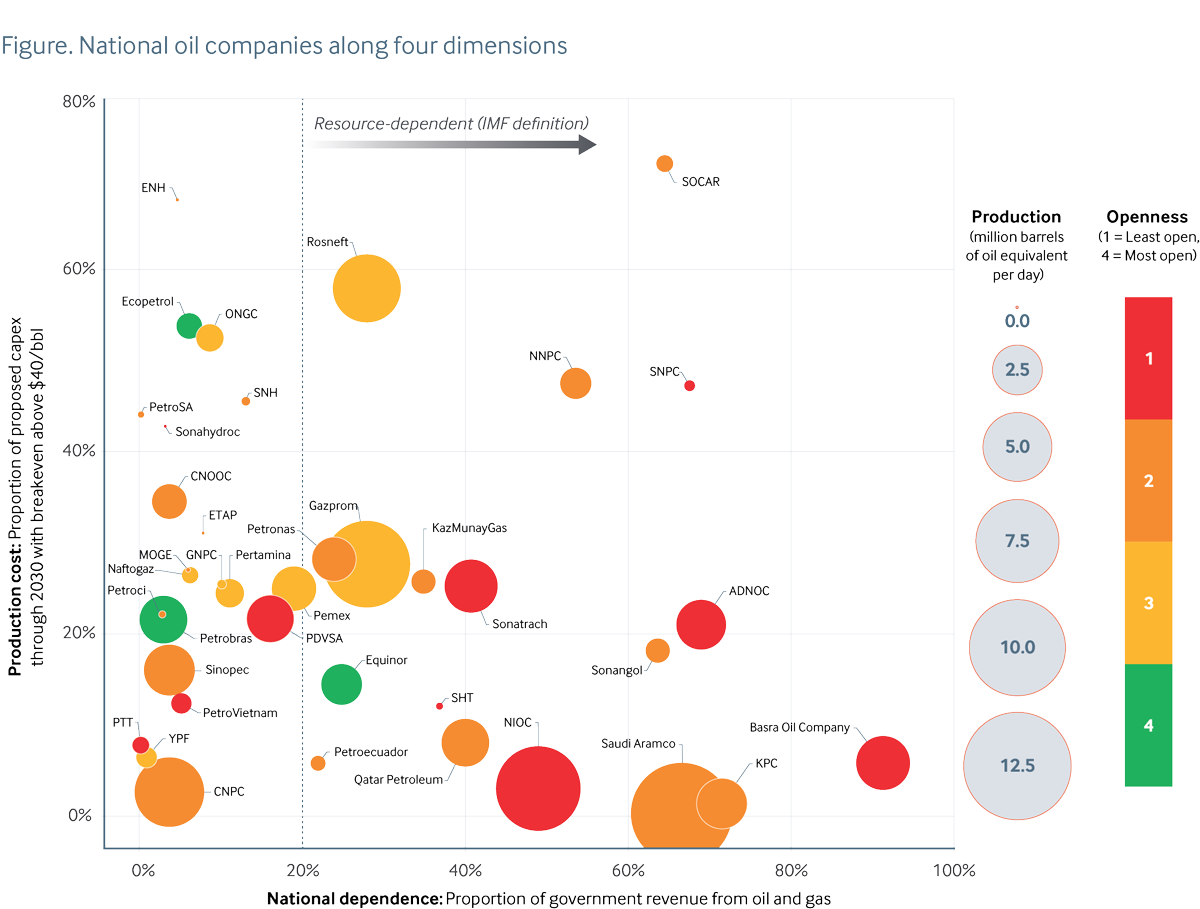
National Oil Companies and Climate Change: Insights for Advocates
In the briefing the authors share five ideas for engagement:
1. National oil companies are national. Engaging with them means engaging with the ambitions of their countries' governments and citizens.
- National oil companies (NOCs) are central to their countries’ economic systems, and national governments and other domestic actors exert the most influence on them.
- To encourage climate reform among NOCs, acknowledge NOCs’ public roles and the challenges and opportunities facing their countries.
2. Interests cloud perception of risks. National oil companies and their governments don't fully appreciate the economic risks associated with their investments.
- The energy transition creates huge risks for many NOCs, but decision makers don’t perceive them while their interests and incentives are tied to the status quo.
- Address these biases by helping leaders to see the positive potential in creating and thriving in a low-carbon future, and empowering NOC and government leaders to succeed in it.
3. Economic development matters. National oil companies won’t change without public pressure and international support to diversify their countries’ economies.
- Reducing NOC oil production without an alternative to fill the resulting economic void would harm vulnerable people in oil-producing countries. Despite many promises and plans, diversification efforts have made little progress, due to structural barriers at both domestic and international levels, and lack of serious political commitment.
- Build public pressure in producing countries to drive real action on diversification, and help create an enabling environment while sharing positive lessons across countries.
4. National oil companies differ. Climate and development advocates should tailor their strategies to distinct types of national oil companies, which present varying opportunities and challenges for reform.
- NOCs vary along five dimensions that impact their reform potential: scope of climate impacts, production cost, home economy dependence on oil, national income level and openness to external influence.
- Examine NOCs along these dimensions to design strategies that maximize impact on climate and development.
5. Renewable energy can be an opportunity or an obstacle. National oil company investment in renewables can boost the energy transition and give NOCs a stake in it, but can be counter-productive in some cases.
- Some NOCs are pursuing investments in renewable energy. Sometimes, these efforts can bolster clean energy and give an NOC a stake in the energy transition, making the company less likely to resist change.
- Think carefully, however, before pushing for a central role for an NOC in a country’s renewables plans. Many NOCs lack the financial, institutional and technical capacities and incentives to drive renewable energy growth, and there is a danger of crowding out other public and private actors.
The authors also map NOCs along several key dimensions:
Authors

Patrick Heller
Chief Program Officer




David Manley
Lead Economic Analyst – Energy Transition



Lourdes Melgar
Chair, Audit and Finance Committee



